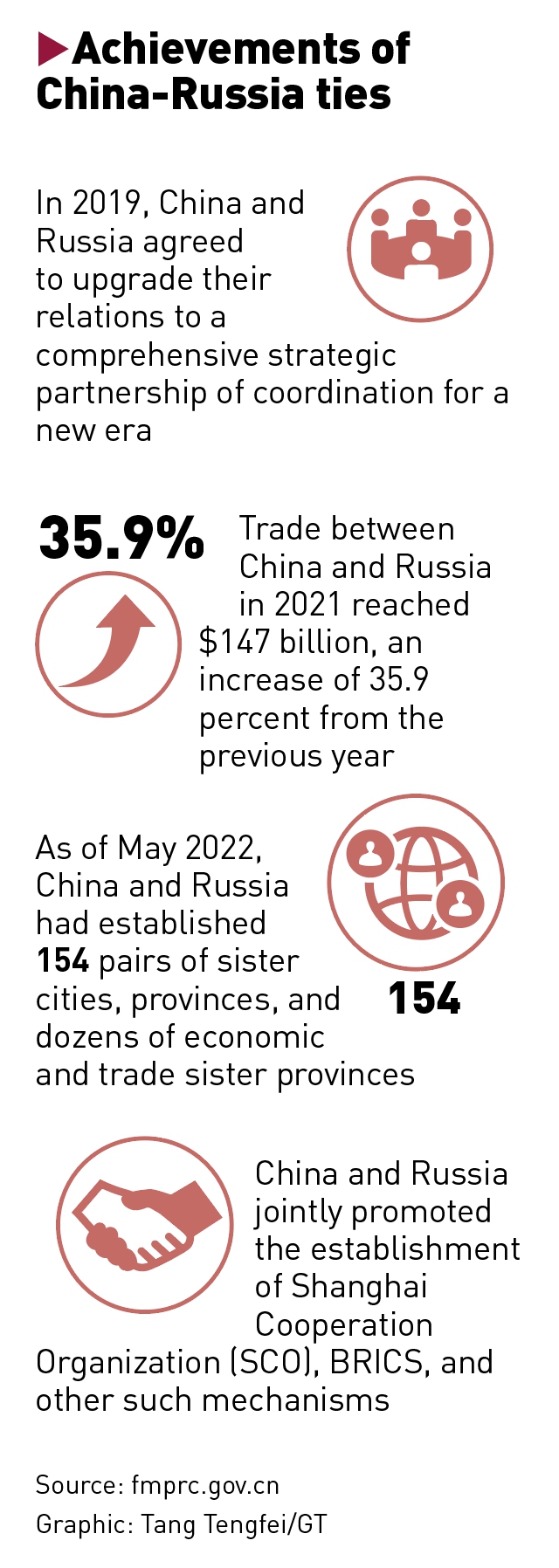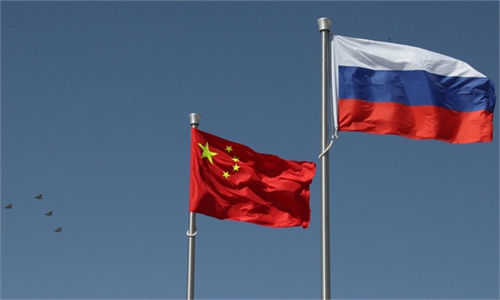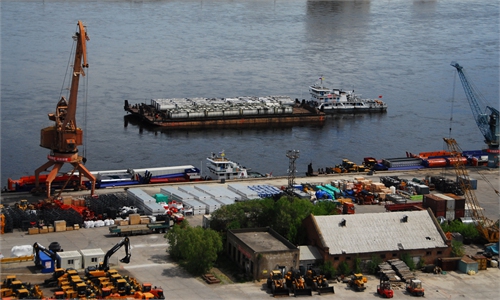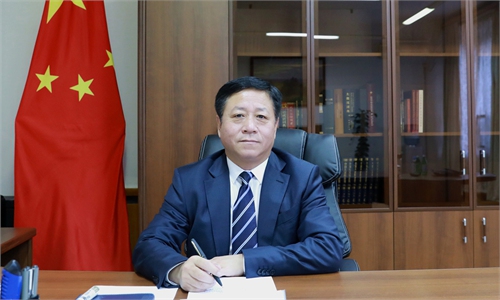IN-DEPTH / DIPLOMATIC CHANNEL
Exclusive: Aggression never in our diplomatic tradition, nor is groveling in character of the Chinese people: Ambassador to Russia
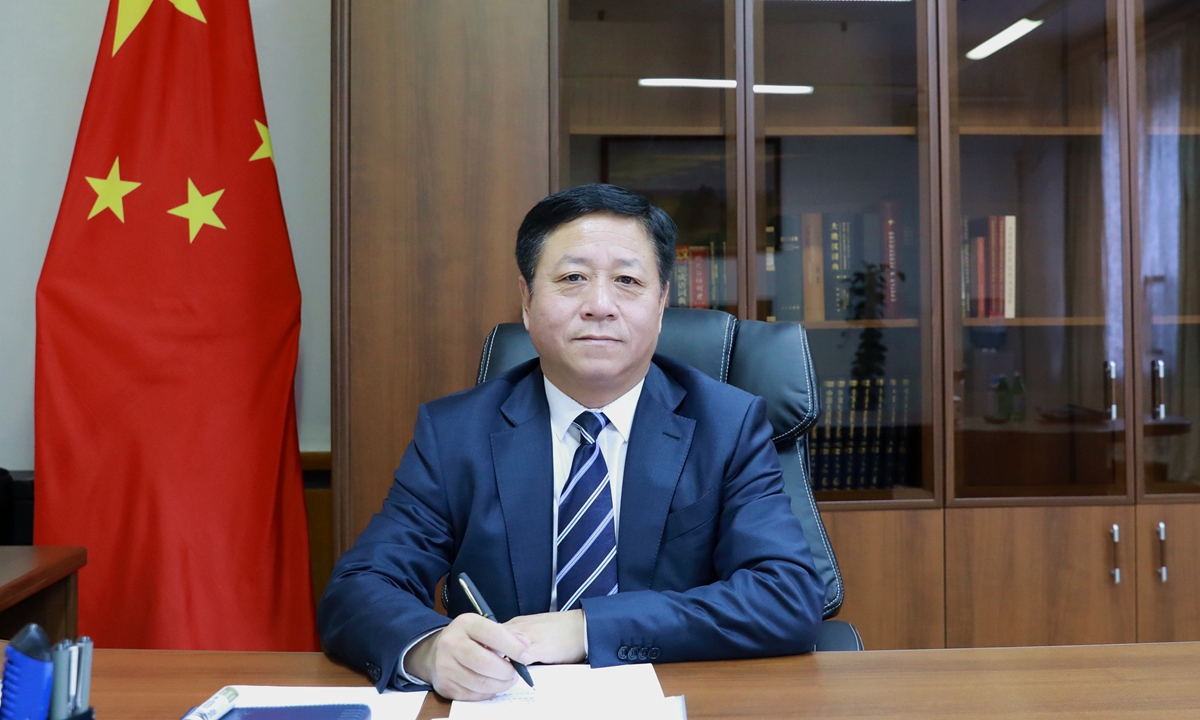
Ambassador Zhang Hanhui Photo: Courtesy of Chinese Embassy in Russia
Editor's Note:
Over the last decade, China has witnessed tremendous changes, which could not have been achieved without the hard work of its people.
There are many ways to record the last decade, but the story that, at times, leaves a mark on each person is surely the most vivid. To greet the 20th National Congress of the Communist Party of China (CPC) scheduled to be held in October, the Global Times has launched a series of stories to acknowledge the remarkable contributions made by people from all walks of life who have dedicated their wisdom and energy to the realization of the Chinese Dream.
Since the 18th National Congress of the CPC in 2012, the image that Chinese diplomats present to the world has been refreshed with the growing international status of China. As a veteran diplomat, Chinese Ambassador to Russia, Zhang Hanhui, previously served in the Department of European-Central Asian Affairs at the Chinese Foreign Ministry, Chinese embassies to the Kyrgyz Republic and Ukraine and as Chinese ambassador to Kazakhstan. In an exclusive interview with Global Times (GT) reporters Fan Anqi, Zhang Hui and Xing Xiaojing, Zhang Hanhui (Zhang) elaborated on how he felt about the change in China's national strength through his diplomatic work, and about which aspects of China other countries are most interested in.
GT: Looking back on the past 10 years, you had worked in the Department of European-Central Asian Affairs at the Chinese Foreign Ministry, and served as the Chinese ambassador to Kazakhstan, and in August 2019, you were appointed as Chinese ambassador to Russia. What changes in China's national strength have you felt during the last 10 years as a diplomat?
Zhang: As a diplomat, what impressed me the most is the comprehensive promotion of major-country diplomacy with Chinese characteristics. China's international influence and appeal have been significantly enhanced, and the international community pays more attention to the Chinese model of economic development and welcomes Chinese solutions to global governance issues. I also have a more profound understanding of head-of-state diplomacy, which has played an important leading role in state-to-state relations. Since 2013, Chinese President Xi Jinping and Russian President Vladimir Putin have met 38 times and jointly led bilateral relations toward the best period in history. It has reinforced a model of strategic mutual trust among major world powers, a model of mutually beneficial relations among neighboring countries, and a new model for international relations.
On several occasions, I participated in the preparatory work for the exchange of contacts between Xi and Putin, and in particular, I had the honor as Deputy Foreign Minister to witness the historic moment in 2019 when the two heads of state jointly announced to upgrade the bilateral relations to China-Russia comprehensive strategic partnership of coordination for a new era.
Shortly after that, I was appointed as Chinese ambassador to Russia. Over the past three years, the complex changes of the international landscape have fully demonstrated the strategic value of China-Russia relations in the new era, reflecting the vision of the two heads of state.
Facing the profound changes, the embassy will continue to implement consensuses reached by the heads of state, promoting the sustained high-quality development of bilateral ties in the new era, and making greater contributions to building a new type of international relations and a community with a shared future for mankind.
GT: How do you practice major-country diplomacy with Chinese characteristics with host countries while you are stationed abroad? What Chinese experiences have been of most interest in your interactions with local people?
Zhang: Over the years, I have been at the forefront of China's diplomacy and experienced many important historical milestones. I have deeply felt how the major-country diplomacy with Chinese characteristics in the new era has been breaking new ground amid great changes worldwide and how crises have been turned into opportunities.
At present, the international situation continues to undergo complex changes, with profound adjustments in global power constructs. Regional conflicts are escalating and threats to world peace and development imposed by unilateralism, protectionism, hegemony and power politics are rising. What rules should we follow in dealing with international relations? How should countries adjust their foreign policies? This is an issue of great concern to many.
A few days ago, I published an op-ed in the Russian newspaper Trud, titled "Xi Jinping's diplomatic thought is the guideline to building a community with a shared future for mankind," introducing the profound connotation and significance of President Xi's diplomatic thought from several aspects.
I have also been interviewed by Chinese and foreign media on China's governance, economic development, anti-corruption, the fight against the COVID-19 pandemic, comprehensive poverty eradication, environmental protection, and science and technology.
On many bilateral and multilateral occasions, I have actively promoted China's great achievements in various socio-economic fields, explained the "golden key" to the governance of China, decoded secrets of CPC's success, shared experience and insights on major-country diplomacy with Chinese characteristics in host countries. In fact, many Russian friends have asked the embassy to provide the book series "Xi Jinping: The Governance of China."
I learned that these issues are not only of great interest to the foreign side, but also those they wish to learn from. Our work is not only to answer questions but also to contribute Chinese wisdom and provide Chinese solutions toward achieving mutual development along with other countries in the world.
GT: Do you think the skills that diplomats need to master should keep pace with the times? Some commented that with the deepening of China's opening-up, Chinese diplomats are getting more "proactive" and acting more "aggressively" in defending China's interests, what's your view?
Zhang: The major changes unfolding in the world with some unseen in a century have intertwined with a global pandemic, and led to new features of diplomatic work. China has moved closer to the center of the world stage than ever before and is playing an increasingly unique and important role on the international stage, and the external environment facing frontline diplomats is more complicated, thus learning and mastering new skills have become the basic quality for Chinese diplomats in the new era.
What I want to stress is that being aggressive has never been in our diplomatic tradition, nor is groveling in character of the Chinese people. Safeguarding China's sovereignty, security, and development interests is the starting point and goal of our diplomatic work. Dare to and be good at fighting is the fine tradition and distinctive feature of new China's diplomacy.
Take US House Speaker Nancy Pelosi's recent visit to China's Taiwan region as an example; the move was clearly a blatant provocation by the US government against China's sovereignty and territorial integrity and a malicious attempt to create tensions in the Taiwan Straits. China immediately expressed strong indignation and firm opposition, which is completely justified, reasonable, and lawful.
No country will compromise on matters concerning its sovereignty and territorial integrity. China does not instigate trouble, but is also not afraid of conflict. Once provoked, we will firmly fight back and the offender will surely be punished.
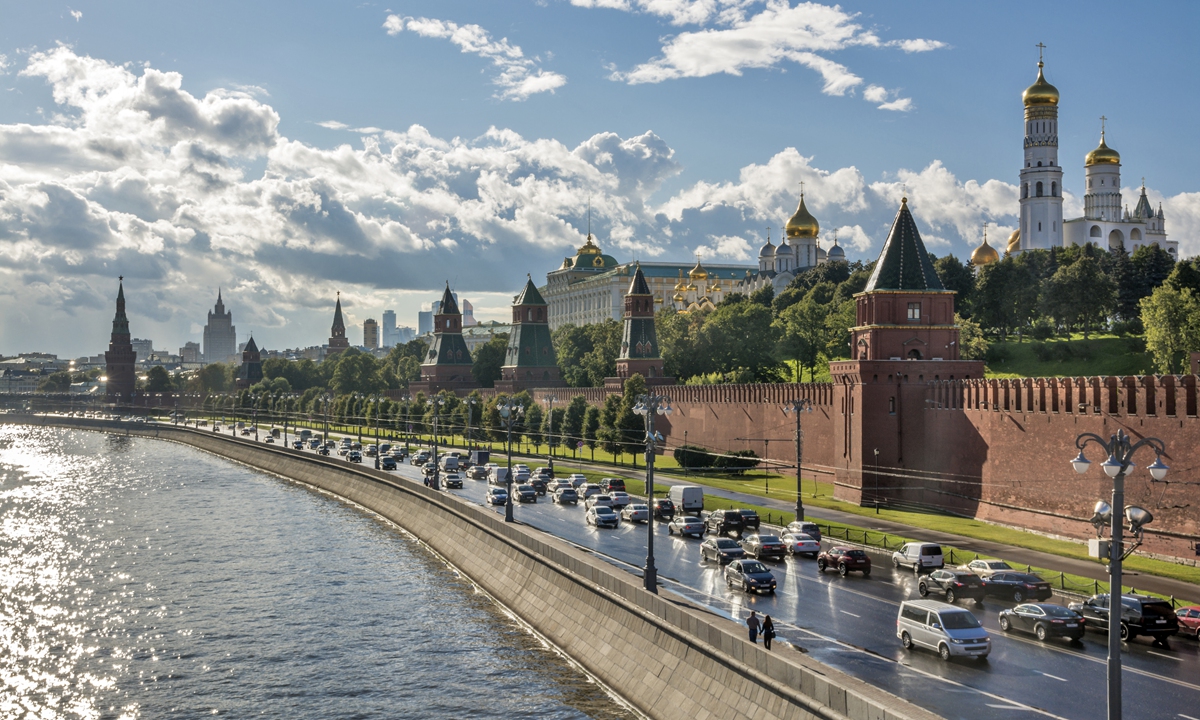
A view of Moscow Photo: VCG
GT: We noticed that during your tenure as Chinese ambassador to Russia, you have given interviews to local media and published op-eds in local newspapers to deliver China's voice through various means. What feedback have you gotten from the local people? Did it help them understand China better?
Zhang: The Chinese Embassy in Russia has established close cooperation with local mainstream media over the years. In 2021, I was interviewed by Russian media or had my articles published 33 times, covering various aspects including the centenary of the founding of the CPC, Belt and Road Initiative (BRI), epidemic prevention and control, poverty eradication, China-Russia bilateral relations, the Hong Kong affairs, and opposition to hegemony and power politics.
In response to US House Speaker Nancy Pelosi's visit to the island of Taiwan, I published an op-ed in Komsomolskaya Pravda, Russia's largest daily newspaper, and was interviewed by TASS, Russia Today, and other media outlets, responding to the concerns of the Russian community on the Taiwan question, explaining China's tough stance toward House Speaker Pelosi's provocative visit, and thanking Russia for its consistent and firm support on matters related to China's core interests.
Friends from various sectors including the Russian government, parliament, think tanks, academe, media, and the general public all contacted us, expressing their support for the one-China principle and said they will stand firmly with China. I am deeply moved by the strong momentum of joint efforts made by China and Russia.
In addition to interviews and articles, I have hosted various public activities through online and offline platforms, giving awards to outstanding Russian youth, planting friendship tree, and helping Russia fight against the epidemic, among others.
As Chinese ambassador to Russia, I truly feel the excellent qualities of the Russian people in their love for peace, justice, and pursuit of truth, as well as their friendship, understanding, and support for the Chinese people.
